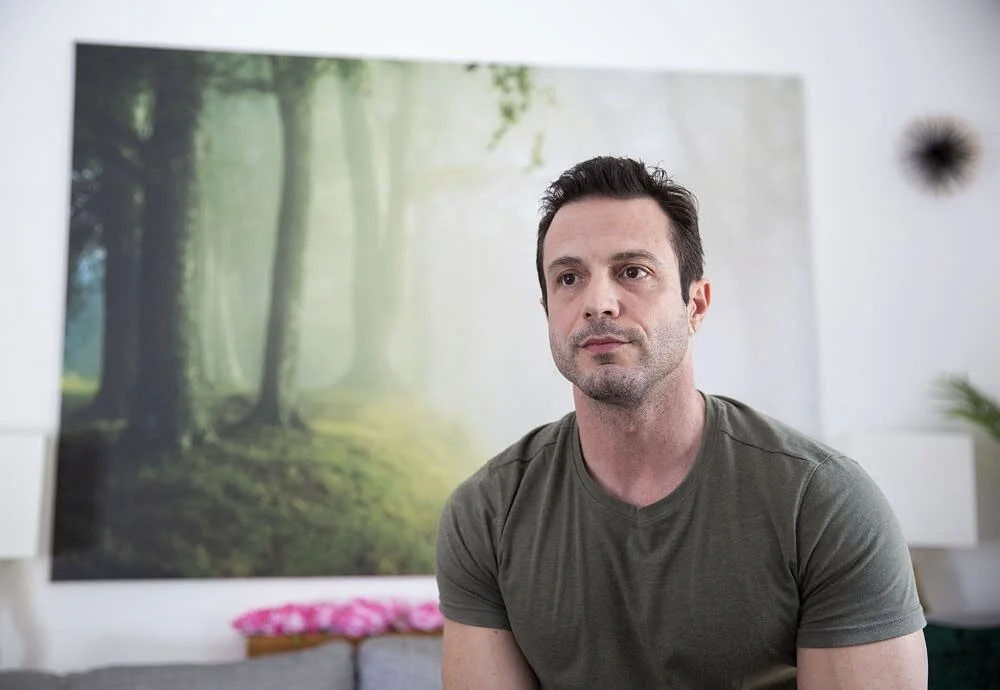Scared? Worried? Anxious? These are normal feelings during this terrifying moment. But now is not the time to neglect your mental health. Here’s how you can stay resilient during this time of uncertainty.
Read MoreUntil last week, Jen Atherton, a mental health counselor, had rarely ever seen clients outside of her office — Not anymore. Like a lot of us, Atherton is working from home now and she’s seeing her patients via video. She said for her office, the switch to telehealth “was pretty much an overnight thing.”
Read MoreBut attorneys for Washington County sheriff’s deputy say Brian Krook had to shoot 23-year-old Benjamin Evans to protect himself, other deputies and the public
Read MoreSome Minnesota-based therapists say their regular clients are worried about everything from running out of supplies to sending their kids to school
Read MoreOne cooperative that insures cities across the state recently raised premiums by 9 percent.
Read MoreSome contend the contracts harm patients and worsen the provider shortage, but hospitals say they keep the costs of health care down.
Read MorePatients in need of inpatient psychiatric care are waiting days to be transferred to beds far from home.
Read MoreThe nation’s shortage of psychiatrists is especially acute in remote areas, leaving many people without access to the care they need
Read MoreMPR News mental health reporter Alisa Roth spent 2019 in prisons, medical offices and in the homes of families to report on some of the most compelling mental health stories in Minnesota this year. She joined the program to talk about those stories and share what she wants to focus on in 2020.
Read MoreOne year ago, Keaton Larson was in crisis. He was shot by a police officer who came to help
Read MoreThis is the third and final episode in our series on childhood trauma and we're going big-picture. So buckle up, because the train is going to make stops in Rantville, Can You Believe This Burg and OMGtown.
Read MoreIf the terrible things that happened to you during childhood can affect your health later in life, how do you NOT live out the worst possibilities for yourself? Is that even possible? In this second episode of our series about childhood trauma, we look at protective factors and resilience.
Read MoreThe National Alliance on Mental Illness, or NAMI, says it's the most common mental health concern in the United States, with 19 percent of adults experiencing an anxiety disorder. So when is it something you just ride out, and when does it become something for which you should seek help?
Read MoreWe all kind of understand that what happens to us as a child affects us as an adult. But there is recent evidence that the way our childhoods affect us is so much deeper and more surprising than we thought.
Read MoreAbout 1 in 10 Americans has a phobia – an intense and persistent fear of something. Common phobias include a fear of heights, small spaces, or spiders. A Mayo Clinic psychologist and someone who has a fear of contamination joined the MPR News with Angela Davis to discuss how phobias can impact the way you live and share ways to cope.
Read MoreEuthanizing animals, dealing with angry pet owners and struggling to pay off student loans add up to a lot of stress. Some vet schools are offering their students support.
Read MoreMinneapolis and St. Paul are proposing new city ordinances that would ban gay conversion therapy, the controversial treatment designed to change people’s sexual orientation or sexual identity.
Read MoreA close call in one Minneapolis family illustrates the challenge of keeping guns away from people who shouldn’t have one
Read MoreOur nonpartisan, nationally representative survey provides new information about the American public’s opinions about gun policies and behaviors among those who own guns (or live with those who do). The survey was conducted July 16 to 21, 2019, just two weeks prior to the mass shootings in El Paso, Texas, and Dayton, Ohio, and it covered several topics. This is the third and last release from that survey; the first release covered “red flag” laws and the characteristics associated with gun ownership and the second covered respondents’ knowledge about gun-related deaths.
Read MoreAlthough suicides account for the majority of gun deaths in the United States—60% in the latest data—by and large American adults are unaware of this. In our survey, only one-fourth of Americans correctly answered that gun deaths by suicide outnumber deaths resulting from mass shootings, murders other than mass shootings, and accidental gun discharges. This is no better than guessing at random from among the four choices given.
Read More
















